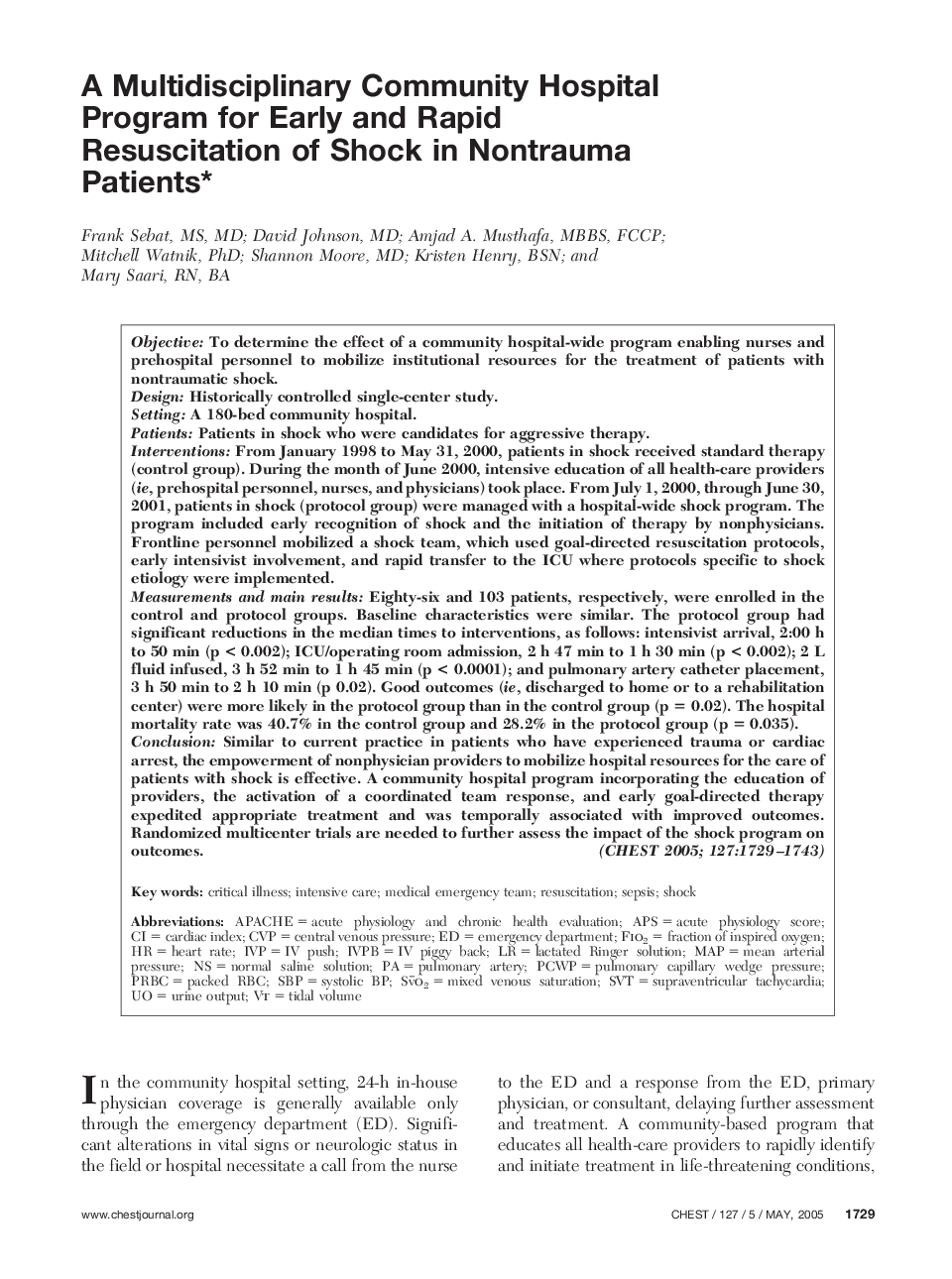| Article ID | Journal | Published Year | Pages | File Type |
|---|---|---|---|---|
| 9161646 | Chest | 2005 | 15 Pages |
Abstract
Similar to current practice in patients who have experienced trauma or cardiac arrest, the empowerment of nonphysician providers to mobilize hospital resources for the care of patients with shock is effective. A community hospital program incorporating the education of providers, the activation of a coordinated team response, and early goal-directed therapy expedited appropriate treatment and was temporally associated with improved outcomes. Randomized multicenter trials are needed to further assess the impact of the shock program on outcomes.
Keywords
SBPIVPSVTpacked RBCFiO2PRBCCVPAPACHEPCWPSvO2APsResuscitationMixed venous saturationemergency departmentCritical illnessSupraventricular tachycardiamedical emergency teamTidal volumeUrine outputnormal saline solutionSepsiscardiac indexPulmonary arteryshockHeart rateSystolic BPCentral venous pressuremean arterial pressurepulmonary capillary wedge pressureAcute Physiology and Chronic Health EvaluationIntensive caremapAcute Physiology ScoreFraction of inspired oxygen
Related Topics
Health Sciences
Medicine and Dentistry
Cardiology and Cardiovascular Medicine
Authors
Sebat MS, MD, Johnson MD, Musthafa MBBS, FCCP, Watnik PhD, Moore MD, Henry BSN, Saari RN, BA,
